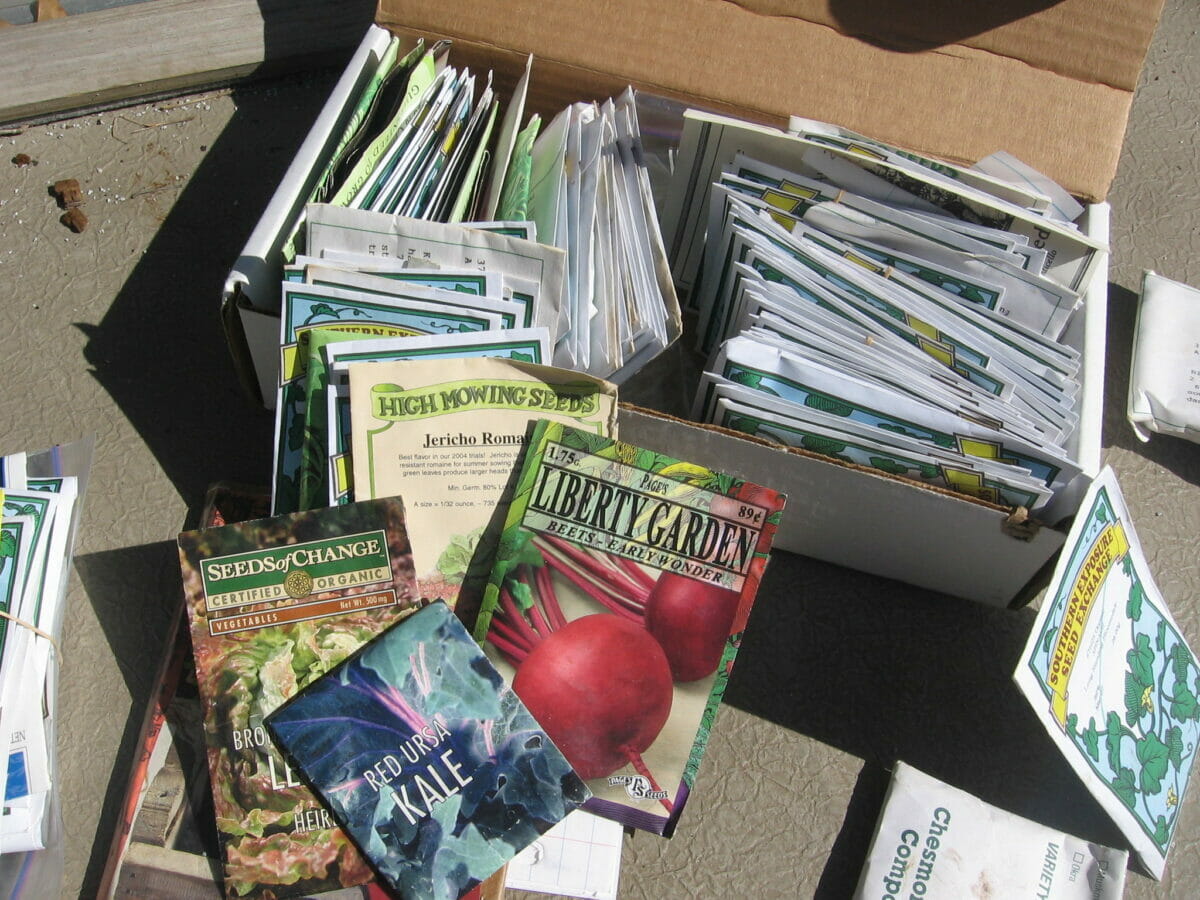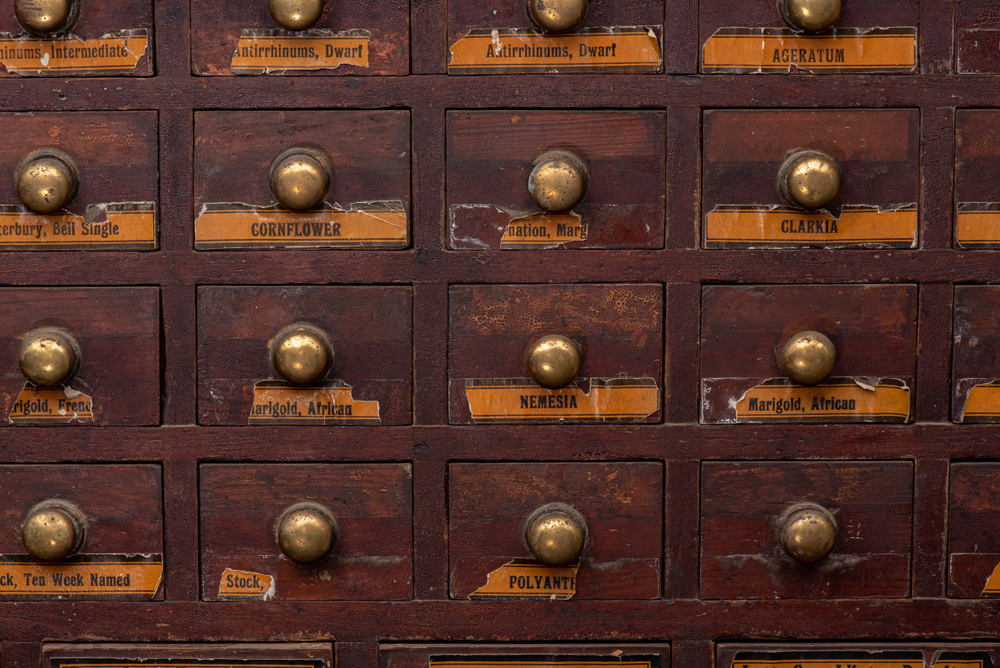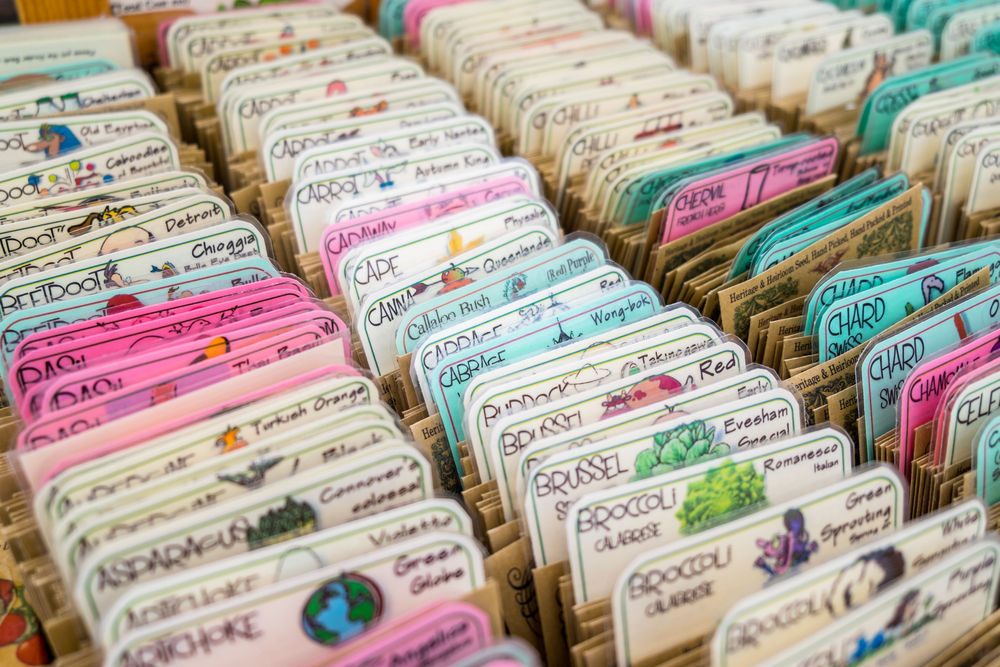Glass jars, photo storage boxes and old library card catalogs all make excellent seed storage solutions. Just don’t forget to label your collection!

It happens more often than most of us would care to admit. We reach into the pocket of a jacket we haven’t worn in a while and pull out a half-empty packet of seeds.
Seeds are powerful. They’re the secret to bountiful gardens, resilient food systems, biodiversity and so much more, but they’re also pesky little things that feel impossible to store. Each season, we tend to end up with a copious number of leftover packets and, of course, loose seeds. Enter our fascination with seed storage systems.
“My favorite way to store seeds is in clear photo storage cases with labels made on a label maker,” says British Columbia-based gardener Mary Jane Duford.

Photo by Linas Gircius, Shutterstock.
While it’s important to correctly store these garden staples to preserve them for the longest time possible, if you ask 10 different home gardeners how they keep their seeds, you’re likely to get 10 different answers. Some, like Duford, tuck them inside photo cases, while others love to store them inside little glass jars. One of my favorite ways that I’ve seen them stored is in old library card catalogs, waiting and ready to be browsed.
So, how should seeds be stored?
While there’s no one right way to store seeds, there are a few things to consider when keeping them for the long term, including moisture content, temperature and light exposure.
Most seeds should be stored in a dry area; otherwise, you can have problems with germination. You always want to keep seeds stored at a relatively consistent cool temperature—aim for about 40 degrees Fahrenheit. Warmer temperatures can dry out seeds or encourage mold growth, while colder temperatures can damage or kill the seed.
[RELATED: The Modern Farmer Guide To Buying Seeds]
Finally, because light can degrade the quality of a seed and reduce its ability to germinate, it’s best to store seeds in a cool, dry, dark place.
“For longer-term storage, it’s best to store seeds in a cool, dry, dark place like a drawer,” says Matthew Geldin, head farmer of Farmscape, an urban farming company in California. “If we store seeds in something air-tight like a plastic tub, we include a silica packet to absorb potential excess moisture.”
What to use to store seeds?
There are many different seed organizing systems available for purchase and plenty of DIY options. Some of the most popular methods for storing seeds are in glass jars, paper envelopes and seed packets. During the planting season, Farmscape makes labeled seed kits using spice shakers and toolboxes. If you don’t have a ton of space, tins and even reusable plastic bags are other good options. Whatever you choose, make sure it’s made of durable materials that will last for years, has plenty of room for all the seeds you need to store and is easy to clean and label.

Photo by Alex Yeung, Shutterstock.
“Label everything! You think you’ll remember what that tomato variety was or those squash seeds you got from your neighbor, but you’ll almost certainly forget,” says Geldin. “Write it down now so you don’t have to remember it in the future.”
How to organize those seeds?
After you know what you’re going to put your seeds in, organizing them can help you quickly take stock of what you have. Think of it like your spice cabinet—if you fail to keep it organized, all of a sudden, you end up with too much cinnamon, yet the chili powder has disappeared. Alphabetical order is a popular way to store seeds, but others like Dunford like to organize them by plant family or planting time.
“I organize seeds by plant family and by which are cool-season and which are warm-season,” says Dunford.
[RELATED: How to Successfully Start Seeds Inside]
Finally, remember that different types of seeds will stay good for various times. For example, radish and collard seeds can be preserved for up to five years, while asparagus seeds keep for three years and onion and parsley seeds are only good for up to one year.
So, tell us: How do you store your seeds?
Store them in ziplocs or vacuum sealed bags IN THE REFRIGERATOR.